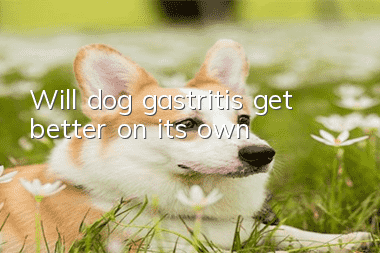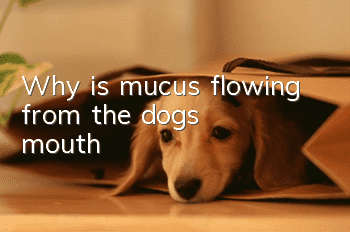Will dog gastritis get better on its own?

Gastritis in dogs has a probability of spontaneous recovery with active treatment. For mild gastritis, the owner can give the dog some probiotics orally under the guidance of a doctor. If the dog's condition is slightly more serious than before, it is necessary to clean its stomach and intestines in time to reduce putrefaction and germs in the body.
Treatment of gastritis in dogs
1. Clean the gastrointestinal tract: laxatives (such as sodium sulfate, artificial salt) should be used orally in appropriate amounts.
2. Anti-inflammatory and antidiarrheal: use 0.1 to 0.5 grams of berberine, taken orally 3 times a day. Among the antibiotics, chlortetracycline, oxytetracycline or chloramphenicol can be used.
3. Food stopping therapy: Dogs suffering from gastritis should stop eating for 24 hours and water for 12 hours. Then feed easy-to-digest liquid food, such as warm milk, porridge, vegetable soup, etc. Pay attention to eating small and frequent meals.
4. Excrete poisons: For toxic gastritis, subcutaneously inject 2 to 10 mg of morphine hydrochloride, or take 15 to 60 ml of castor oil orally to promote the excretion of toxic substances.
5. Antiemetic and rehydration: For sick dogs with refractory vomiting, intramuscular injection of 1 mg of chlorpromazine per kilogram of body weight.
6. Antibacterial and Anti-inflammation For gastritis caused by secondary infectious diseases, antibiotics are commonly used for anti-inflammation. Commonly used antibiotics include gentamicin, kanamycin, penicillin, etc.
7. If there are bleeding symptoms, hemostatic measures should be taken. Hemostatic sensitivity can be injected intramuscularly.
8. Antiemetic, metoclopramide, 1~2 mg/kg body weight, intramuscular injection, 2 times/day.
- How to avoid getting your dog pregnant
- What to do if your Bichon Frize keeps having diarrhea? How to treat your Bichon Frize to have diarrhea!
- Causes, Symptoms and Treatment of Difficult Labor in Dogs
- What can’t Tibetan Mastiffs eat?
- How to train a dog to fetch a ball. Commands and rewards are both crucial.
- What should I do if one of my dog’s nails turns black?
- Oral diseases commonly suffered by dogs
- How to express anal glands in dogs
- How many months does a male Labrador mature?
- Only by understanding your dog’s habits can you raise a good dog!



